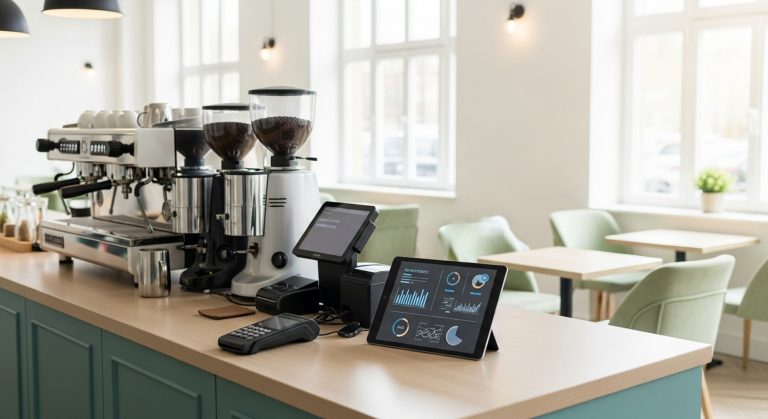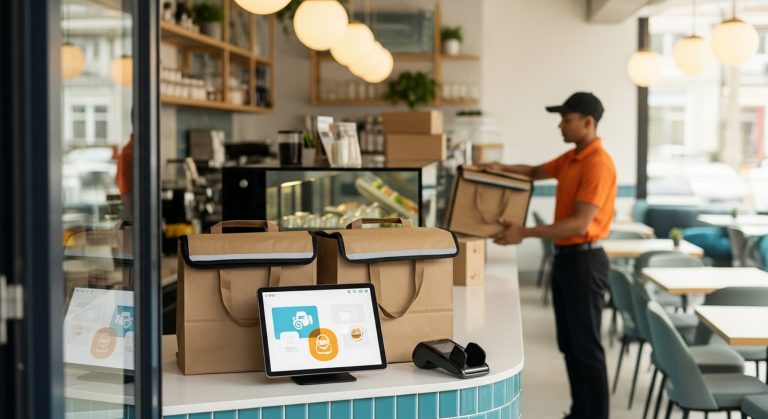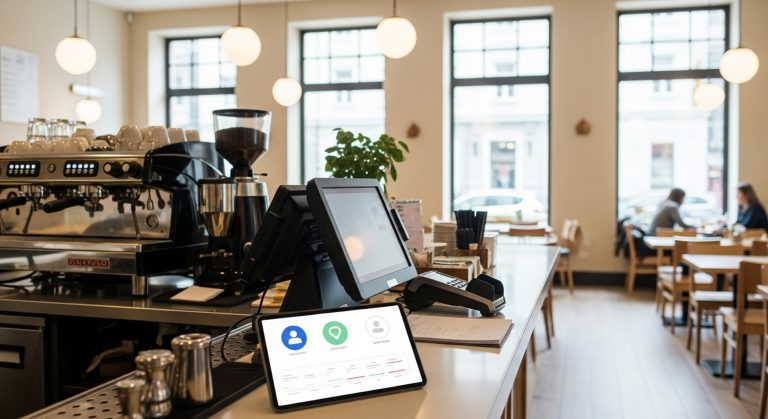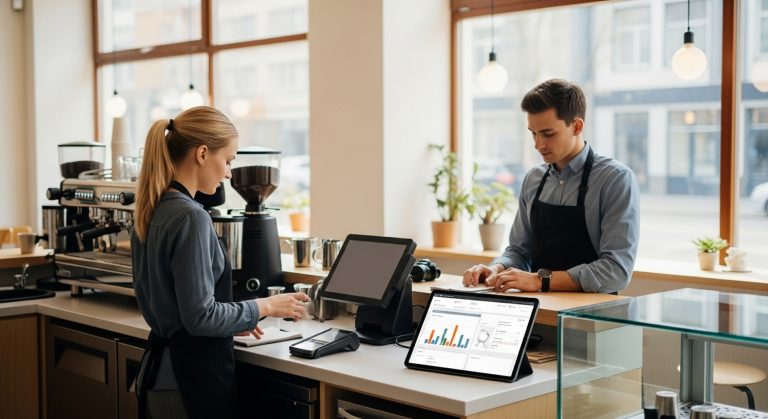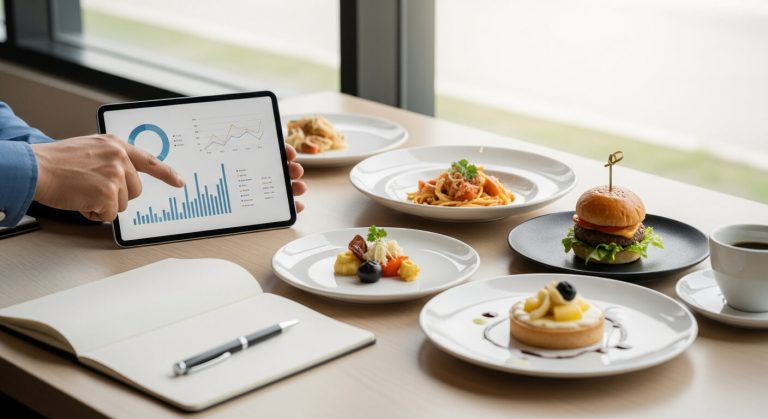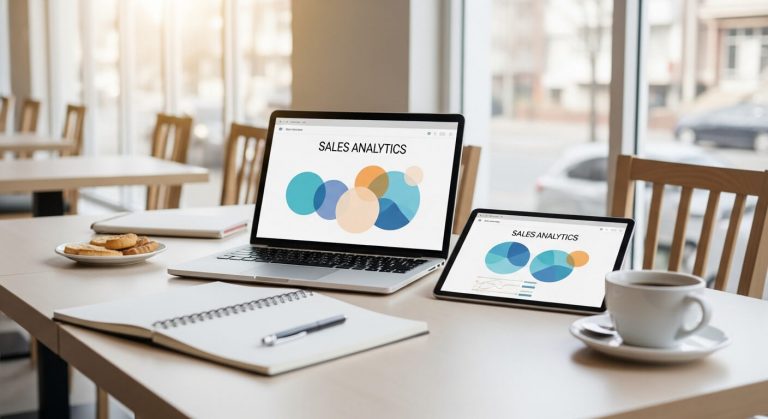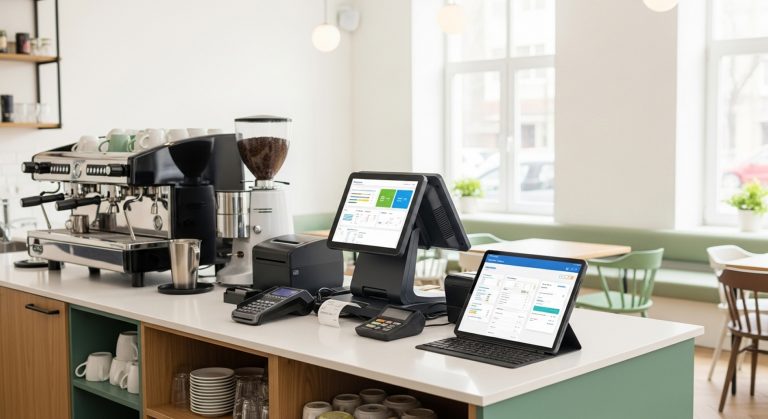

Imagine: it’s a Friday night, and you have a full house. Waiters are rushed off their feet, the kitchen is slammed, and the phone is ringing off the hook with people wanting to book a table for tomorrow. Sound familiar? Now, imagine you have an invisible assistant who knows every guest by sight, remembers their favorite dish, and helps your team work like clockwork. Sounds like magic? No, it’s just a smart restaurant automation system.
Let’s explore how to turn chaos into a smoothly running machine and why a modern establishment can no longer do without one.
CRM in the Restaurant Business: What These Systems Are and Why Restaurants Need Them
Many have heard this acronym, but not everyone fully understands what’s behind it. Let’s talk about it without complex terms and convoluted explanations.
What is CRM in simple terms?
To put it simply, CRM (or Customer Relationship Management) is like the notebook of your most attentive hostess, but in digital format. A CRM system collects and stores all information about your guests: how often they visit, what they like to order, when their birthday is, and which promotions they respond to. It’s not just a database; it’s the key to each customer’s heart.
What kind of system is used in restaurants?
Competition in this business is huge. It’s no longer enough to stand out with just delicious food. Guests want attention and a personal approach. This is where CRM for restaurant business comes onto the stage. It’s no longer just an option but an industry standard that helps build long-term relationships with customers. A smart CRM system for a restaurant turns casual visitors into loyal fans of your establishment.
What is CRM in the restaurant industry?
Here we’re talking about comprehensive systems for restaurants. It’s not just software for a restaurant, but an entire ecosystem. Such a system links the dining room, kitchen, warehouse, and marketing all together. With the help of a CRM, a waiter can see a guest’s preferences right on their terminal, and a manager gets detailed analytics for decision-making.
Why a Restaurant Needs a CRM System
So, is a CRM system necessary, or can you get by the old-fashioned way? The answer is obvious if you want to grow and develop. Here are just a few reasons why you should use a CRM.
Main advantages of a CRM:
- Knowing your guests personally. The system allows you to track order history, preferences, and even allergies. Imagine how pleased a guest will be when they are offered their favorite dessert without having to ask.
- Effective loyalty programs. Forget about plastic cards that everyone loses. A loyalty system helps accumulate bonuses using a phone number, offers personal discounts, and sends holiday greetings through automated mailings.
- Operational optimization. A restaurant automation system connects the dining room, kitchen, and warehouse. An order instantly goes to the chef, and the necessary products are deducted from inventory. This reduces errors and wait times.
- Smart booking. A modern table reservation system for a restaurant doesn’t just record a name and time. It shows seating availability, helps manage guest flow, and can even request a deposit for a large banquet.
- Profit growth. A CRM helps analyze data: which dishes are most popular, what the average check is on different days of the week, which promotion worked best. This analysis helps make sound management decisions and increase revenue.
CRM Systems for a Restaurant: Selection Criteria and Comparison
The market offers many solutions, and it’s easy to get lost. Let’s figure out what to look for to choose the right CRM system for a cafe or restaurant.
What to look for when choosing
Most often, comprehensive solutions are preferred. This isn’t just software for restaurant management, but a whole ecosystem. An accounting system for restaurants should easily integrate with an online cash register, a delivery website, and other services. A cloud-based system is particularly popular today as it’s accessible from any device and doesn’t require expensive servers. It allows you to manage your business effectively even from a smartphone.
To choose a CRM for restaurants, pay attention to the following points:
- Integration: Make sure the system for your cafe or restaurant easily connects with your existing equipment and other software.
- Functionality: Do you need a CRM system with a full marketing suite, or is a basic CRM for a coffee shop sufficient?
- Ease of use: The entire staff will be working with the system. Therefore, it’s more convenient to work with a CRM when the interface is intuitive.
- Support: It’s important that the developer has good technical support to help with setup and resolve any issues that may arise.
Many restaurateurs are concerned about the financial aspect. A common question is, how much does Syrve program cost, or its equivalents. The cost depends on many factors:
- The number of licenses (workstations).
- The selected set of modules (CRM for food service, inventory management, marketing).
- The format (a one-time purchase or a monthly subscription to a cloud service).
Therefore, before choosing a CRM system for your cafe or restaurant, request quotes from several providers. This will help you make the right choice.
How to Implement a CRM System in a Cafe or Restaurant and Train Staff
The decision has been made, the CRM system has been chosen. What’s next? Next comes the most interesting part — implementation.
The CRM implementation process typically includes migrating the existing customer base, training staff, and fine-tuning it to your processes. The main thing is for every employee to understand why they need to use the CRM. Not only the manager but also the hostess and waiters should work with the CRM.
A CRM system for a cafe or restaurant becomes the center of all operations. Here’s what it looks like: a guest calls to book a table. The hostess enters the number into the CRM system, and all the information instantly appears on the screen: the guest’s name, how often they visit, what they usually order. This allows you to immediately offer something special. The system enables quick and error-free order taking, which is sent directly to the kitchen. After the visit, the restaurant’s CRM system can automatically send the guest a message asking for feedback.
So, what’s the bottom line? You shouldn’t see a CRM system for restaurants as just another piece of software. It’s a full-fledged business partner that works 24/7, turning routine into a meaningful process and building that invisible but strong connection with guests.
This is precisely why a CRM for restaurants and cafes is not an expense but a direct investment in your most valuable asset: your reputation and loyalty. A good, well-chosen CRM for a restaurant helps establish those warm relationships that turn one-time visitors into regulars.
It doesn’t matter if you manage a large establishment or a cozy coffee shop. A modern CRM system for restaurants easily adapts to the needs of a small venue. Flexibility is exactly what a CRM for the restaurant industry should be. You don’t have to overpay for excessive functionality; a quality CRM for a cafe solves key tasks: it builds a guest database, helps with reservations, and launches simple loyalty campaigns. This makes using a CRM accessible and effective for any restaurant or cafe.
Ultimately, the essence of CRM for the restaurant business comes down to one thing: building human relationships in a digital age. It is with the help of a CRM for restaurants that you get the opportunity to see not just a number behind every check, but a guest’s story. The very structure of how cafes and restaurants operate allows you to turn this knowledge into a real competitive advantage. A successful CRM for cafes and restaurants is one that helps make the service in your restaurant or cafe truly personal. Guests return to where they are remembered and valued, and it is the CRM system that should be thanked for this opportunity.
In the end, the choice is yours. You can continue to operate in a constant state of crisis, relying on intuition and notebooks. Or you can choose a CRM system, decide to implement it, and start building a business where every guest feels special. The only question is, are you ready to transform your establishment from just a place to eat into a place people return to?

